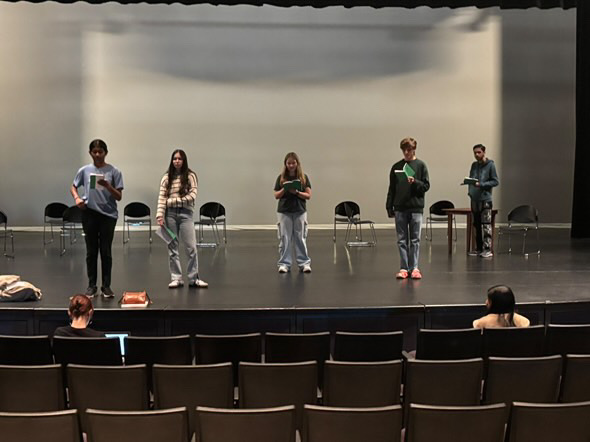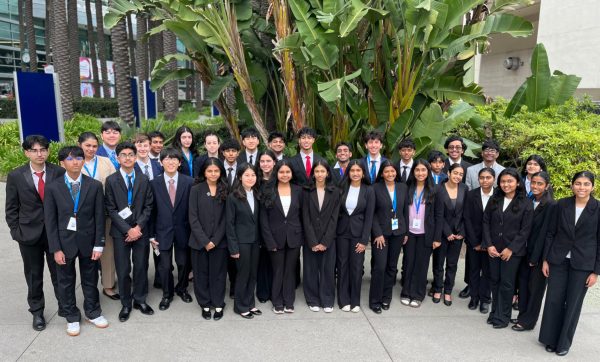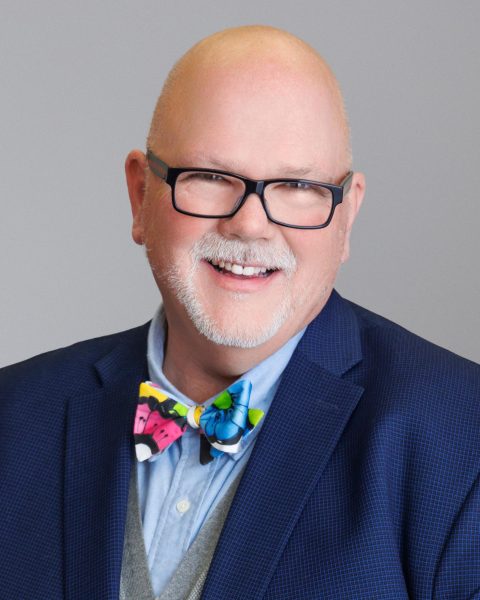Dear Class of 2016: Advice from your teachers
All of your teachers, from your drooling toddler years to your current stressed, college-bound days, play an influential role in your life as a student both academically and socially. As the class of 2016 meanders off onto the winding roads of their futures, a lot of those who are going to college have no idea what to expect. Most of us forget that our teachers were once in our shoes and can offer valuable advice on the questions that incessantly plague us.
One question buzzing in everyone’s mind is what they’re going to do for the rest of their lives. A lot of students have no clue about what to pursue as a career, and, frankly, should not be expected to. Mr. Muralt, a math teacher at Wilcox, stated, “You don’t need to know exactly what you want to do with your life. Just because you’re done growing physically doesn’t mean you’re done growing mentally and characteristically. I got an engineering degree and I was an engineer for five years before I realized I loved working with kids.”
Plenty of our other teachers were not completely set on what they wanted to do as well. Mr. Niczewicz went to a community college for that reason. He commented, “I figured whatever classes I liked best would help me decide. That’s why I chose Poli Sci.” It was only until later on at SJSU that the pre-law classes “sounded terrible” to him. By the time he was a senior, he finally decided he wanted to teach government and got his teaching credential.
Mr. Soykin offered up some advice about declaring a major, “I was pretty decided on my major before going and I declared it. I don’t regret that choice but I wish I put more thought into it in high school. [Majors] should include passion and don’t let that be your only driving factor…Even if you do declare a major, don’t feel stuck with it. Take classes that aren’t necessarily part of your major, talk to other people.”
You may be upset that you didn’t land at the school of your dreams and “had to settle” for a lesser school, and Mrs. Guttadauro, the mom of the senior class, offered her best advice, which was, “to be where your feet are. Sometimes you get accepted into schools you don’t want to go to and you have only the thought of transferring in your mind. Truly get involved because you’ll meet people with similar likes. Start vesting yourself into the school, wherever you land you should give it your full attention. At least when you still want to transfer, you’ll be firm in that decision.”
Another issue students find themselves struggling to cope with is the heaping amounts of money that is tuition. Although a majority of our teachers did not have to deal with the overwhelmingly high tuition that most of the college students of today face, there are several tips that can help alleviate that monetary burden. Mr. Hedlund disclosed, “I applied for financial aid, scholarships, and I worked quite a bit. I organized my budget by simply not spending. When money is short, you learn to spend money on what you need, not what you want.”
Getting a job may also end up being a critical part of the college experience, as when Soykin got a job at the school’s cafeteria “it was on campus so [he] felt a part of the community, made a lot of friends there.” He added, with a grin on his face, “I didn’t have to cook a meal in all of those four years.” He also wouldn’t have met his wife if he hadn’t worked that job.
Now, having to balance a job to pay off tuition, extracurriculars, and the daunting rigor of college academics is a burden that can crush even the best of multitaskers. One challenge the class of 2016 may have to face that a lot of our teachers did not is the omnipresence of technology. Many of the teachers I interviewed echoed that it can be a huge distraction, as we “don’t know how to get your phones out of your hands, turn them off, and leave them at home,” Hedlund asserted. On tips for staying organized and focused in class, Ms. Sison stated, “Put due dates all into one planner rather than having to flip through four different syllabi. Also, it’s unnecessary to take notes in class with a laptop because you don’t process it as well [as writing it by hand].” Hedlund advised students to take their work day by day; you can’t cram everything into your mind the day before a final exam that will determine a large portion of your grade.
Homesickness can be another addition to the burden that the average college student must already bear. Mr. Soykin said that he would set a time and date to call his mom, and that prevented him from calling home every day and missing out on a lot of time he spent enjoying with his friends. Busying yourself will also get your mind off of home and is conducive to a better quality college experience.
When asked about their favorite memories, all of the teachers replied that it were those made with their friends. Muralt said the combo of “Friends and being able to play sports…influenced me to coach while in college. It’s a much deeper level. You spend a lot more time together.” His absence of regret stems from knowing that each mistake he made allowed him to go down a path that lead to the creation of more lifetime bonds and friendships.
Even for those who are introverts, Soykin suggested, based off his own experience, “Look at the clubs they have on campus and if it was related to their passions. The only two clubs I joined were related to my two passions. Club faire is an easy thing for the introverted person to do. Find the things that are somehow related to what you like, step out of your comfort zone and attend those meetings.”
While college is the glue that bonds enduring friendships, it is also the time where one needs to think about their future. Yes, you aren’t expected to be completely set on a career path, but, as Soykin put it, “you need an end goal. Especially in terms of jobs and how that relates to your degree. Yes, these are important years and the people you meet could be lifetime friends, but that creates pressure to create life friends. Don’t force the issue.”
The most important piece of advice from many teachers is that you substantially solidify yourself as a unique individual in this four-year span. Mr. Dobos stressed that college is “your time to learn who you are. I think most people go off the rails in college when they start giving into peer pressure and when that happens, you’re basically letting someone else determine who you are.” He fervently emphasized, “You’re losing your opportunity to self-discover, and that’s the most important thing you can do in college.”
Mrs. Guttadauro eloquently put the importance of the college experience, “This is the best time of your life. This is it. These years are going to fly by. Think about how you feel now with Wilcox being over, and don’t feel that regret you may have now in the future.” She paused for a moment and then an even bigger grin spread across her glowing face, “Have fun. This is a big celebration.”





